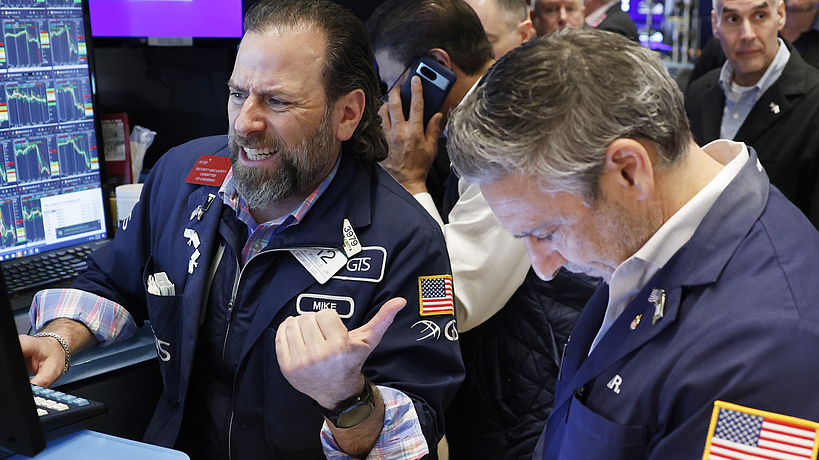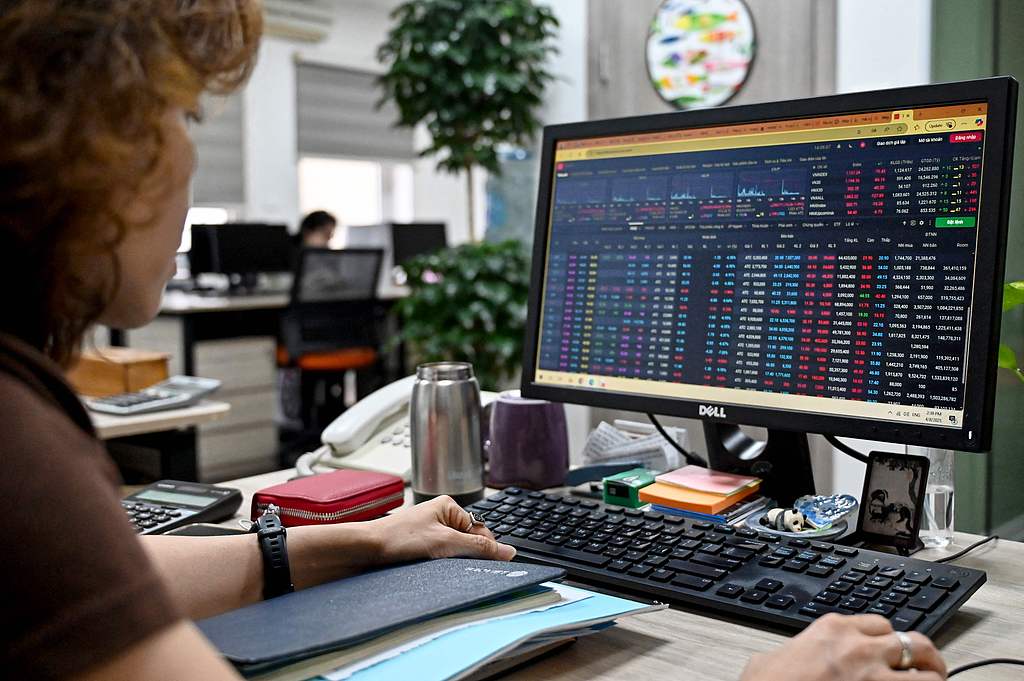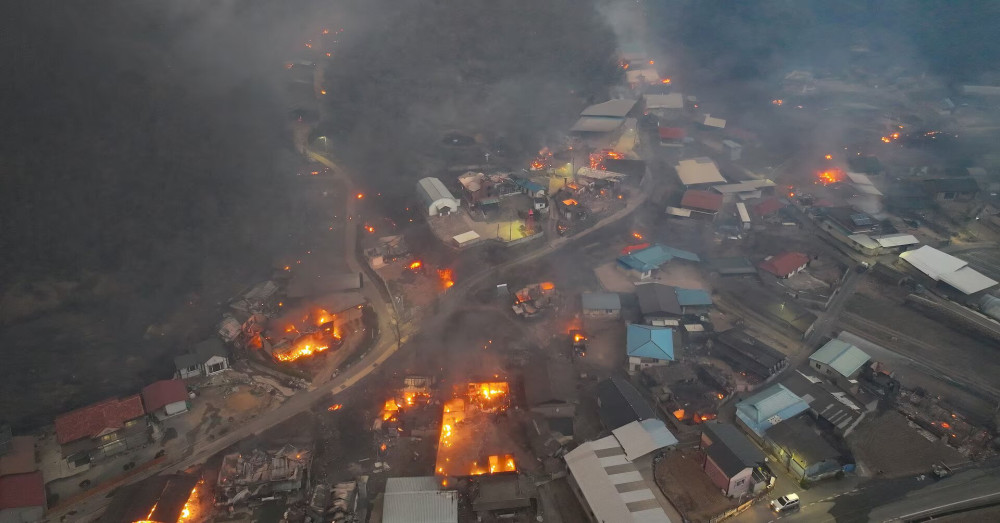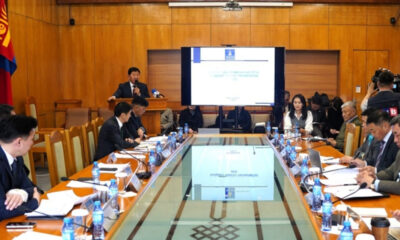Дэлхий дахинд
Францын олимпийн найдвар харамсалтайгаар амиа алджээ

Токио-2020 зуны XXXII олимпийн наадам цар тахлын улмаас хойшлогдсон нь зарим тамирчдад боломж, заримд нь гарз хохирол болж байна. Энэ удаад Францын 16 настай хаданд авиралтын тамирчин Люси Дауди бэлтгэлийнхээ үеэр амиа алдсан тухай Францын хаданд авиралт, уулын спортын холбооноос мэдэгдлээ. Тэрбээр найзуудын хамт Францын өмнөд хэсгийн Кроллес тосгоны ойролцоо орших хадан хясаан дээр бэлтгэл хийх үеэрээ санамсаргүй байдлаар алдаа гарган доош унаж, харамсалтайгаар амиа алджээ.
Хаданд авиралтын спорт нь ирэх Токио-2020 олимпийн наадамд шинээр багтаж буй төрөл юм.
Францын хаданд авиралт, уулын спортын холбооны өнгөрөгч Даваа гаригт гаргасан мэдэгдэлд “Энэ харамсалтай мэдээ түүний хамтрагчид, дасгалжуулагчид, Чамбери Эскаладе клубт үнэхээр хүнд цохилт боллоо. Гэхдээ өнөөдөр бол дан ганц клуб гэлтгүй бүхий л холбоо гуниглаж байна” хэмээжээ.
Люси Дауди өнгөрсөн жил Итали улсын Арко хотод зохион байгуулагдсан залуучуудын хаданд авиралтын дэлхийн аваргад түрүүлж, мөн АНУ-д зохион байгуулагдсан IFSC буюу Олон улсын спорт хаданд авиралтын холбооны мэргэжлийн ангиллын Боулдер дэлхийн цомд анх удаа оролцон тавдугаар байр эзэлсэн шилдэг залуу тамирчин байжээ.
Саяхан Их Британийн скейтбордын олимпийн найдвар, 11 настай Скай Броун бэлтгэл хийх үеэрээ өндрөөс унан эмнэлэгт хүргэгдсэн билээ.

Дэлхий дахинд
The U.S. tariff tantrum: A self-defeating trade war

Editor’s note: Xin Ping is a commentator on international affairs, writing regularly for Xinhua News Agency, CGTN, Global Times, China Daily, etc. The article reflects the author’s views and not necessarily those of CGTN.
Washington’s latest tariff blitzkrieg – slapping “universal” levies on over 180 nations and regions – is setting things on fire at home.
The moment the executive order was signed, U.S. markets went into freefall: the Dow plunged nearly 4 percent, Apple and Nike stocks nosedived, and $6.4 trillion vanished from Wall Street in two days.
This isn’t economic policy. It’s economic arson.
The art of self-sabotage
Will tariffs bring manufacturing home? Despite years of arm-twisting, American tech giant Apple still works with 94.5 percent of its suppliers being overseas.
Apple isn’t an outlier. The semiconductor industry is facing obstacles in reshoring back to the U.S. as well. Intel has paused its Arizona factory. TSMC is delaying U.S. production. The problems hindering “made in America” are systemic and may only be addressed through a broad and profound economic restructuring. Tariffs won’t magically resurrect dead industries; they only inflate prices for already-struggling consumers.
The U.S. tariff spree, unleashed in the name of “America First,” is in fact a masterclass in shooting oneself in the foot. U.S. farmers will be hard hit. In the aftermath of the 2018 China tariff, while U.S. soybean exports eventually rebounded, the farming community suffered irreparable damages: Midwest farm bankruptcies spiked 30 percent, wiping out generations of family farms. Today’s “Tariff 2.0” risks repeating history – but with higher stakes.
China’s counterpunch
Beijing has been defending itself with precise actions, hitting back with matching levies. But its market remains open to others. Germany’s automakers, for instance, now sell more cars in China than at home. ASEAN’s durians and lobsters enter Chinese markets tariff-free under RCEP – a stark contrast to America’s “walled garden” approach.
As China’s commerce ministry stated: “Bullying tactics won’t work. We defend rules, not whims.” Similar tactics have failed before. When the U.S. tried weaponizing small-parcel exemptions to target Chinese goods, U.S. retailers revolted, as 60 percent of affected imports are everyday essentials for low-income households.
Allies: from partners to prey
American allies are not spared either, and their response has also been strong. The EU is poised to approve retaliatory measures. France is warning against “suicidal trade wars.” German industries are lobbying Brussels to hit back harder. Japan is calling the moves “deeply regrettable.”
In Southeast Asia, the irony is thicker than durian pulp as countries like Vietnam face 46 percent tariffs but remain trapped supplying components to U.S. tech giants. An economist in Hanoi reveals the reality: “Trump wants us to be his factory, but not his competitor. That math doesn’t add up.”
The U.S. tariff crusade isn’t just failing – it’s uniting the Global South against Washington. The U.S. only accounts for around 15 percent of global trade. The remaining 85 percent is made up by the rest of the world – including China – and it will not stand idly by and watch the international trade system, the very thing that fostered global prosperity for decades, destroyed by self-serving political motivations.

A woman looks at an electronic stockboard on her computer at a trading company in Hanoi, Vietnam on April 8, 2025. /CFP
The ghost of Smoot-Hawley
History has long given its verdict on tariffs. The 1930 Smoot-Hawley tariffs turned a recession into the Great Depression. The déjà vu is uncanny: U.S. steel tariffs briefly boosted producers but killed 75,000 downstream jobs. American icon motorcycle manufacturer Harley-Davidson was forced to shift production overseas to avoid costs. “Made in America” has become “priced out of America.”
Those in Washington are preaching “short-term pain for long-term gain.” Tell that to the 27 U.S. textile mills shut down in the past 20 months, or the single mom paying 17 percent more for Walmart clothes. Some on Reddit have put it quite well: “Tariffs are taxes on the poor.”
Epilogue: The unlearned lesson
The White House insists this is “historic” – and they’re right. Not since the 1930s has the U.S. so recklessly weaponized trade. But the world has changed: China is deeply integrated into global supply chains, the EU makes its own decisions, and ASEAN won’t ditch prosperity for geopolitics.
The clock is ticking. Every tariff tweet coming from Washington is shredding U.S. credibility. Every market plunge erodes the White House’s “strong economy” narrative. And America’s isolation deepens with every trade deal other countries make on lowered tariffs, such as those between China and ASEAN and European countries.
In the end, it’s not just about the economy. America is turning its back on the world. The path it has chosen is a solitary one.
(If you want to contribute and have specific expertise, please contact us at opinions@cgtn.com. Follow @thouse_opinions on X, formerly Twitter, to discover the latest commentaries in the CGTN Opinion Section.)
Дэлхий дахинд
БНСУ даяар галын нөхцөл байдал ноцтой түвшинд хүрснийг зарлалаа

Дэлхий дахинд
Сөүл хотод авто зам цөмөрч мотоциклтой иргэн унажээ

Өчигдөр буюу даваа гарагт Сөүл хотод авто зам цөмөрч, мотоциклтой иргэн унасан байна. Одоогоор тус иргэнийг аврах ажиллагаа үргэлжилж байгаа аж.
Орон нутгийн цагаар өчигдөр орой 6 цагийн үед Гандун дүүрэг дэх бага сургуулийн ойролцоох авто зам цөмөрч, бараг 20 метрийн өргөнтэй нүх үүссэн байна.
Тус нүх зургаан эгнээтэй замын дөрвийг нь хамарч байгаа бөгөөд нэмж томрох эрсдэлтэй байгаа аж. Улмаар Сөүл хотын захирагч яаралтай арга хэмжээ авахыг үүрэгджээ.
Одоогоор зам цөмөрсөн шалтгааныг тодруулахаар ажиллаж байна.
Гэхдээ албаныхны урьдчилсан байдлаар үзэж буйгаар зам цөмөрсөн шалтгаан нь замын доорх ус дамжуулах хоолой хагарснаас үүдсэн байж болзошгүй гэв.
Осол гарсан замын доор метроны есдүгээр шугамын өргөтгөлийн ажил мөн хийгдэж байжээ.
-

 Нийгэм20 цаг өмнө
Нийгэм20 цаг өмнөАгаарын хөлгийн түлш нийлүүлэх тухай Засгийн газар хоорондын хэлэлцээрийн төслийг дэмжсэнгүй
-

 Нийгэм24 цаг өмнө
Нийгэм24 цаг өмнөАвлигын дөрвөн хэргийг шүүхэд шилжүүлжээ
-

 Улс төр21 цаг өмнө
Улс төр21 цаг өмнөЗам тээврийн ослын 98 хувь нь жолоочоос шалтгаалж байна
-

 Нийгэм23 цаг өмнө
Нийгэм23 цаг өмнөУлаанбаатар хотын 100 байршилд автобусны карт цэнэглэгч киоск төхөөрөмжийг байршууллаа
-

 Эдийн засаг21 цаг өмнө
Эдийн засаг21 цаг өмнөНӨАТ-ын буцаан олголт энэ сард иргэдийн дансанд орно
-

 Нийгэм38 минут өмнө
Нийгэм38 минут өмнөУлаанбурхан өвчний 688 тохиолдол бүртгэгджээ
-

 Нийгэм20 минут өмнө
Нийгэм20 минут өмнөСоёлын гавьяат зүтгэлтэн Б.Долгион таалал төгсжээ
-
Нийгэм7 минут өмнө
Сэлгээнд тариалах тосны ургамлын үрийг биржээр дамжуулан арилжина














































































